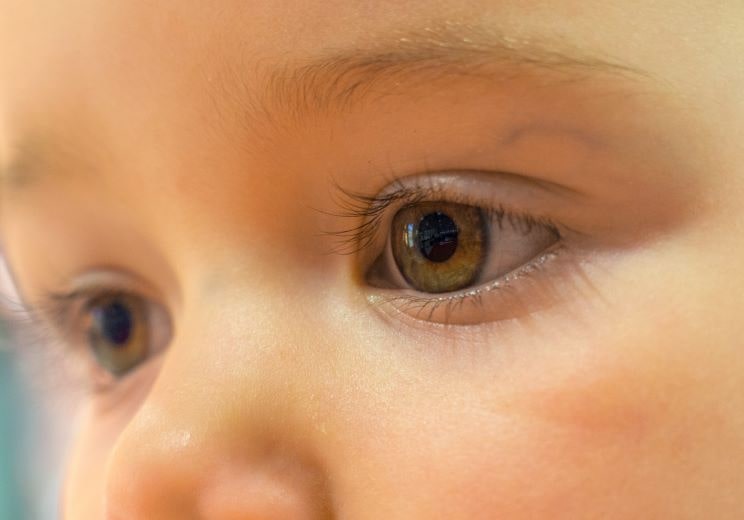
One of the most widespread ocular myths in the population is that the eye is the only organ that does not grow. Nothing is further from the truth, which is that our eyes grow throughout our lives, especially during the first two years of life and during puberty.
In this article we show you the temporal evolution of the eyes and the most common pathologies in each stage of life.
The eye of a human being begins to form from the third week of gestation and remains closed until the 28th week, when the fetus begins to sense the presence of light.
At birth, a baby’s eye measures about 16.5 millimeters and senses blurry visual stimuli. At this stage, some babies also experience a change in eye color, especially those born with blue or gray eyes. Newborns do not have full visual ability and learn to move, focus and use their eyes over time.
The first objects to focus on are those that are close to them, specifically, at the distance of the mother who is holding them. These same eyes begin to coordinate in the first days of life and it has been proved that shortly after, the baby is able to follow the objects with his eyes.
The development of the eyes towards a more complete perception occurs at the age of 2 years, where the child not only perceives images clearly and brilliantly, but also integrates all visual perception into his or her psychomotor development, although it is not until the end of the second decade that the eye can be considered adult.
During this stage, eye problems may occur due to poor eyedevelopment. The most common problems are:
Most of these eye problems can be treated at an early age, but they are irreversible once the child grows up. For this reason, it is recommended that complete checkups be performed by pediatric ophthalmologists, such as those you can find at the ICR’s Pediatric Department. In addition, boys and girls from 10 years of age also have the option of visiting one of our general ophthalmology specialists.
Although the eyes consist of living tissues that evolve until the end of life, their growth usually stops around the age of 20.
The most significant changes of this stage occur from the age of 40, where the eye begins to lose the ability to focus, an eye problem known as presbyopia. The eye also tends to become dry and eye problems, such as farsightedness or glaucoma, increase.
The decline in vision is evident from the age of 60 on, where different eye diseases manifest due to aging. The most common pathologies at this age are:
In order to reduce the risk of certain diseases related to eye aging and especially atherosclerosis, it is important to play sports regularly and maintain a healthy diet. In addition, an annual ophthalmological check-up is recommended to prevent possible age-related eye pathologies.
Contact us or request an appointment with our medical team.